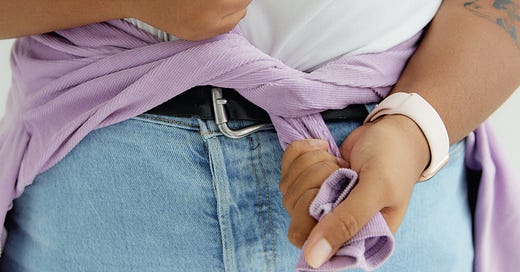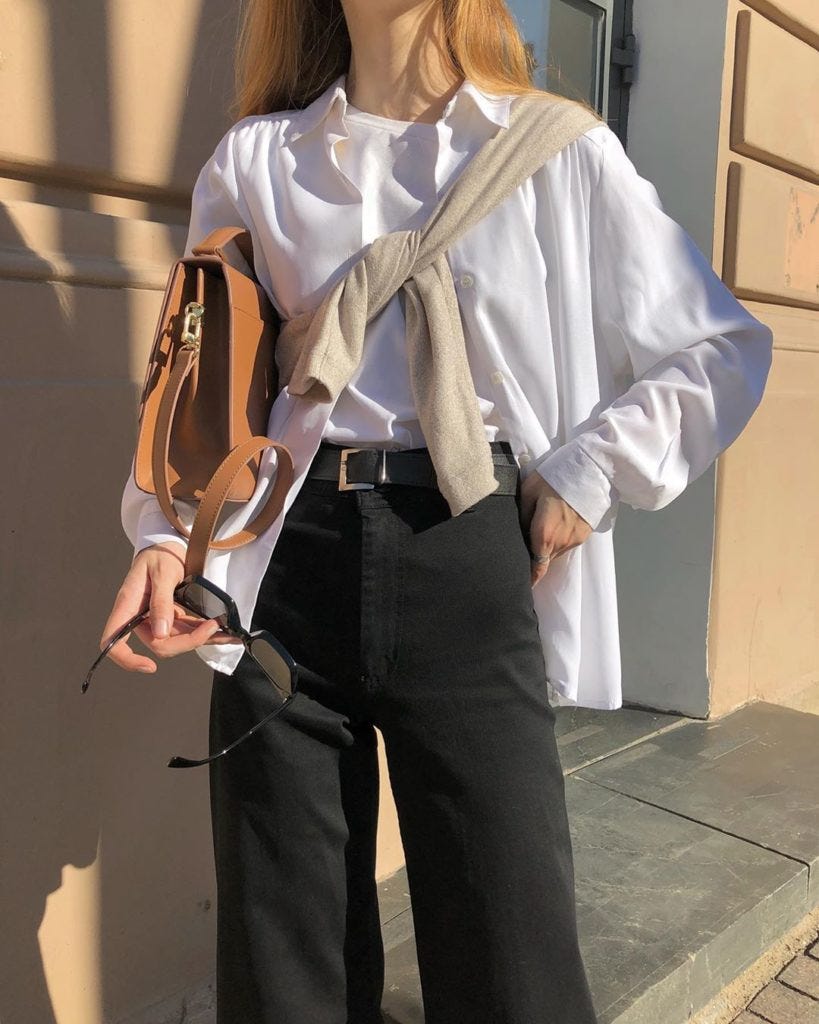Hello! I hope the weekend is treating you well so far. I have officially renamed The Ethical Fashion Roundup into something less clunky. So without further ado, welcome to Threadbare!
Today’s email will be a lazy one because my brain is very full after a busy month moving cities. But I wanted to touch on something I’ve been thinking about recently as I go through a bit of a quarter life crisis trying to figure out a routine that works for me. How to balance work, relationship, friends, family, exercise, hobbies, money, housework, travel, rest, mental health and all the other stuff. Who knows how anyone keeps up.
Anyway, with an excess of my non-work time currently being mis-spent on a) scrolling through TikTok and b) going out drinking, I’ve noticed that fashion trends are more recognisable to me than usual. As an ex-fast fashion addict, I like to think I was starting to develop an immunity to trends, learning to feel more comfortable in my own rather simple style without agonising over what strangers thought about someone so ‘plain’ claiming expertise in fashion. But while queuing for a bar a few weeks ago, I spotted that at least 50% of the clientele, most of whom were significantly younger than my friends and I, had their jackets or jumpers tied diagonally around their torsos, like this:
While searching for this picture (source), I realised just how out of the loop I am, because this method of jumper-tying is clearly a well established micro-trend, perhaps a natural and pretty practical follow-up to the viral Uniqlo cross-body bum bag. After pretty much completely detoxing from Instagram this year, I had obviously missed this one, and I felt a pang of FOMO that surprised me. Although this micro-trend is less about consuming a new product and more about styling existing items, it reminded me that education alone can never be the antidote to a compulsive shopping habit, nor a tendency to value oneself on the ability to present a certain image. Going inwards is the only way to unpack the ‘fast fashion’ mindset, as despite nearly 10 years of work in this field, I still find myself sometimes falling back into the negative cycle of: Feel nothing —> Buy something —> Feel nothing.
There are two tools that have helped me to process these patterns of thinking and consuming which I’d love to share with you. The first is a model I learned on my degrowth course last year (currently enrolling for this year if you’re interested), which I cannot for the life of me remember the name of. But it’s pretty simple - just draw some concentric circles on a piece of paper, and label each one as its own ‘sphere of influence’ in your life. For mine, I did: a) myself and my home, b) partner/friends/family, c) local area/workplace, d) city/country, and e) world. It looked a bit like this:
Then, in each circle, we added post-its with different things that we are influenced or impacted by , or that we could impact or have an influence on. Nothing groundbreaking here, but I think its a really helpful exercise to make you feel a little less cynical about your capacity for positive change, both internally and externally. Particularly in this new era of climate doomerism, we all need a little reminder of the things we do have the choice to make a little better.
The second thing that I wanted to recommend is The Unpublishable, a newsletter by Jessica DeFino. It’s primarily about the beauty industry, but you won’t find any affiliate links to plastic-wrapped products. Instead, DeFino unpacks themes like patriarchy, colonialism, climate and capitalism in such a nuanced way that it’s now the only Substack I pay to subscribe to because her writing has fundamentally shifted how I view and interact with the industrial complex of Making Women Feel Bad About Themselves. For anyone interested in sustainable fashion, its a must read.
I would love to hear your thoughts and recommendations for how you’ve tackled your own relationship to fashion or consumerism in general. Thank you for reading and supporting Threadbare!






Jessica's writing is awesome. I quoted her a few times in this piece: https://open.substack.com/pub/objet/p/telling-the-truth-about-sustainable?r=2cys&utm_medium=ios&utm_campaign=post -- that might resonate with you.
and to answer your question, we're typically building objet.cc to help everyone (us included) enjoy a better, healthier, calmer relationship with consumerism.